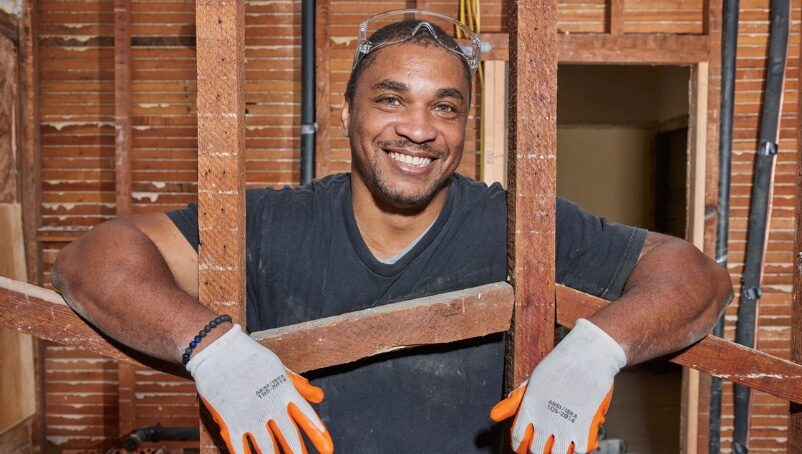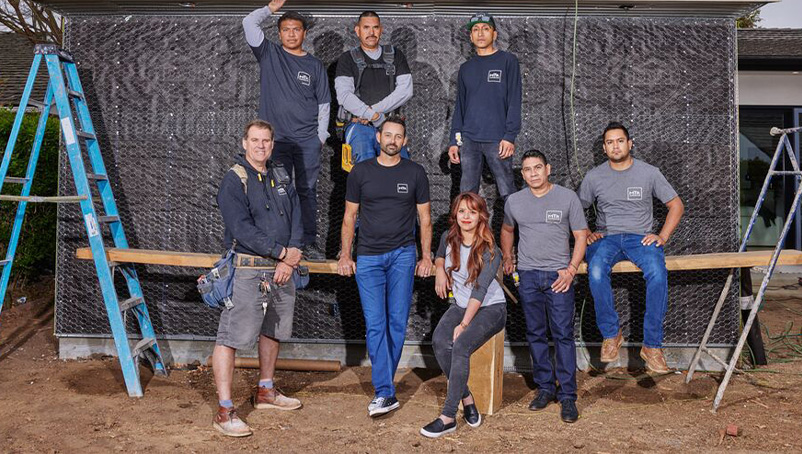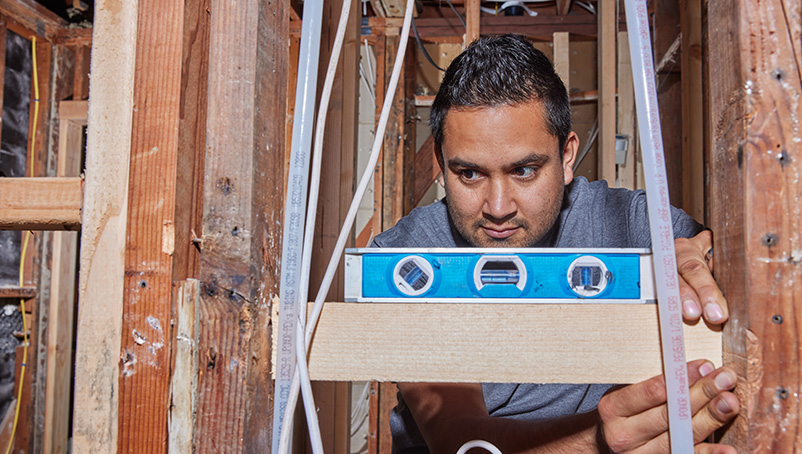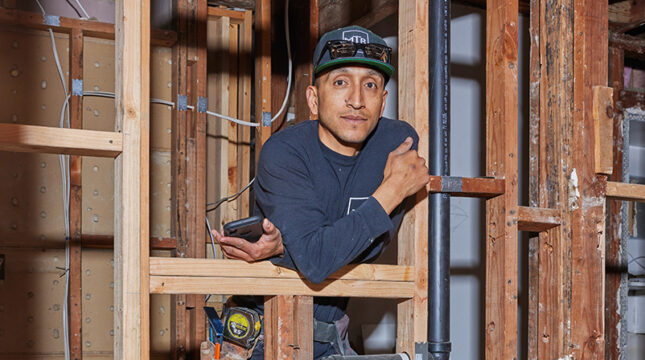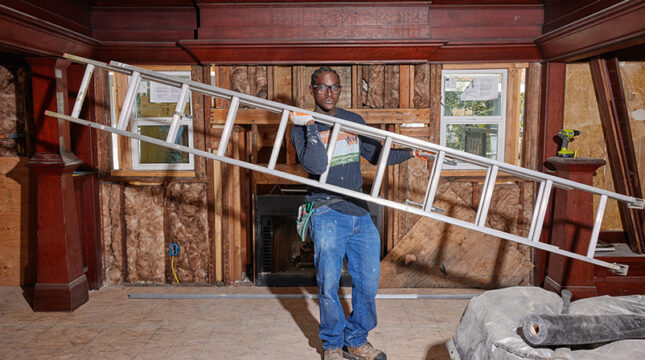2. Structured training is valuable
While you can learn a lot as a construction helper, there are big benefits to enrolling in a structured training program like a vocational course or an apprenticeship.
These programs can help you build valuable professional skills needed as a general contractor while expanding your industry network.
McSweeney says school helped jumpstart his career. Most community colleges offer affordable courses on trades like electrical or plumbing that include hands-on learning.
You can also do an apprenticeship, which McSweeney says is like a “university of construction,” with an important bonus: You get paid to learn. Typically, “you get hired by a contractor, you go to work during the day, and a couple of nights a week, you have a two-hour class.”
Depending on the program and the trade, an apprenticeship could take as many as four years to complete. But by the end, you’ll be well-prepared to start working on your own; many organizations offering apprenticeships will help you get a job.
Read more: 8 steps to build a successful home renovation business
3. Want to learn a trade? Try carpentry
Many general contractors start out specializing in a trade. If you’re going to pick one, you might want to pick carpentry, McSweeney suggests.
“You’re there at the beginning of the project,” he says. “You’ll set the forms for the slab to be poured. You’ll have to coordinate with the plumber and the electricians who are there because they’ve got to put in their pipes before your forms go in, and then you’ll frame the building and then you’ll also come back and put in the doors and windows after it’s framed.”
Of course, carpentry isn’t the only way in. McSweeney began as an electrician and painter.
“As the electrician, I was there putting in temporary power from the beginning of the project, and the painter is the absolute last guy on the job.” That helped him gain an understanding of construction from start to finish.
Remember though, as a general contractor, your job isn’t to do everything — it’s to manage the crew.
“You don’t need to be a master carpenter to hire a master carpenter. You have to be knowledgeable enough to be able to communicate with the master carpenter, to let them know what you want and what your client expects.”
4. Learn accounting and estimating
Succeeding as a general contractor isn’t about more than your building skills. You also need business smarts, starting with a basic knowledge of accounting.
“If you want to go borrow money from a bank, you’ve got to be able to show them a profit-loss statement,” McSweeney says. “You’ve got to understand a chart of accounts. You’ve got to understand how to segregate expenses the proper way.”
He learned this the hard way working as a young painter and getting hired by local contractors: “I didn’t understand what my costs were. I didn’t understand what my overhead was. I was getting 90% of the jobs I bid, and I thought I was just the world’s greatest businessman. The reality was I was undercharging for really good quality work.”
Read more: How to bid on construction jobs: Tips for winning the projects you want
Getting accurate information on your costs is especially important today, as supply chain disruptions mean the prices of common materials could vary significantly over short periods.
“If you’re thinking, ‘I’m going to need 10 spools of wire and they’re $60 a piece,’ but then you go to buy it and they’re actually $125, that’s going to hurt,” McSweeney says.
Read more: Construction inflation: Contractor efforts to combat inflation have hidden risks
Also, keep in mind that your costs go beyond materials and wages.
“If you’re paying a guy $30 an hour, then there’s taxes, overhead, workers’ comp — all those things add up along the way,” he says. “So what does it actually cost you per hour to have that guy in the job? The $30 an hour you’re paying him could be more like $50.”
